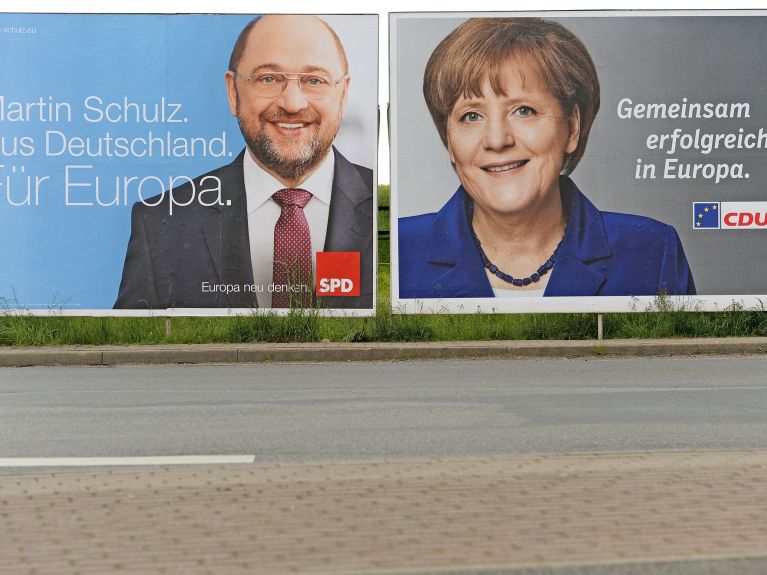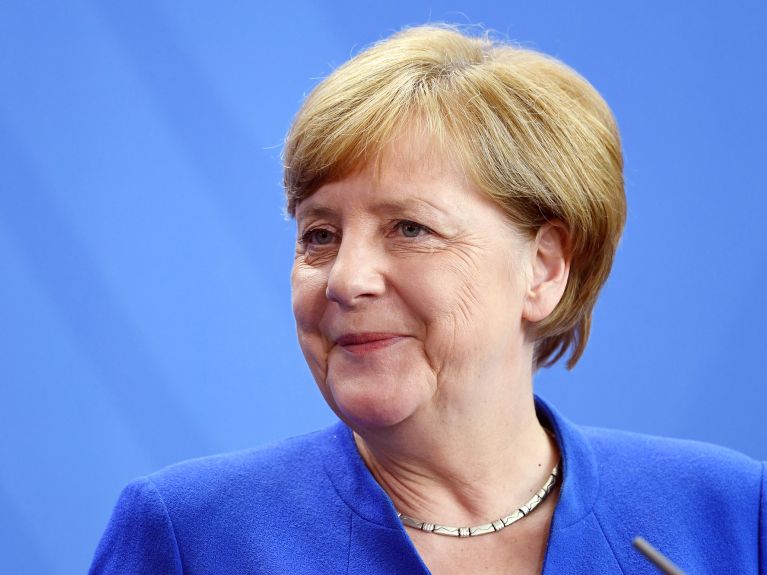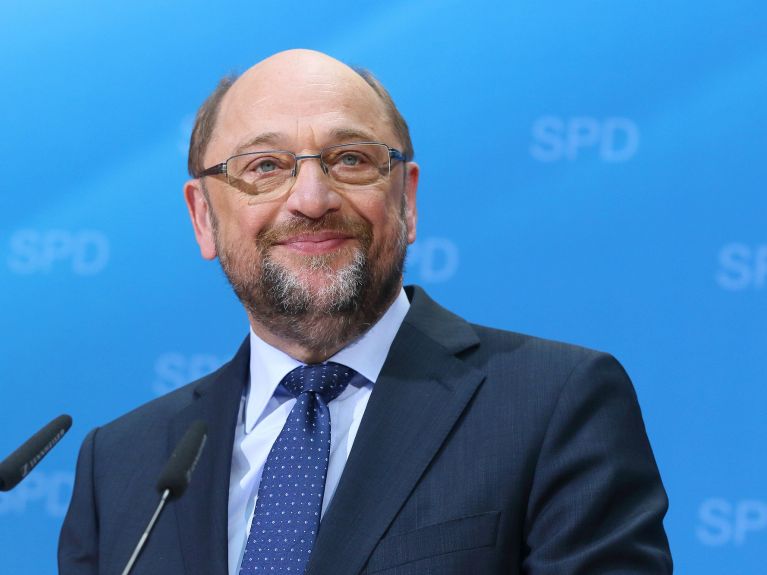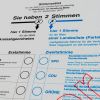The Chancellor candidates
Portrait of personalities: Angela Merkel and Martin Schulz are standing for the office of head of the German government.

The incumbent: Angela Merkel

“Even when she was awkward and shy, you could feel her energy, her force, from the beginning”. This was the way the photographer Herlinde Koelbl described her impression of the young politician Angela Merkel to Time Magazine for the big portrait of the Federal Chancellor as “Person of the Year 2015”. Many people connect Merkel’s reserved yet resolute manner with her professional beginnings in the natural sciences, where sober analytical skills are required.
Born in 1954, Merkel has a doctorate in physics and worked for a long time in the GDR at the East Berlin Academy of Sciences. When the GDR underwent its dramatic political turn in 1989, Merkel joined the alliance “Democratic Awakening” and, shortly before German reunification in October 1991, switched to the Christian Democratic Union of Germany (CDU), whose party chairpersonship she took over in 2000 and continues to hold today.
Under Chancellor Helmut Kohl, Merkel initially headed the Department of Women and Youth, and later the Ministry of the Environment. Many people did not expect her election to the Federal Chancellorship and now twelve-year long term of office, not least because of her rather cautious style of politics. Her decision to open the German borders to refugees in 2015, therefore, caused all the more of a stir.
Merkel has changed Germany – and her party, the conservative CDU. Ground-breaking, for example, have been her decision for the energy turnaround and her fundamental openness to “marriage for all”. At the same time, Merkel stands for permanence. For instance, in the event of an election victory, she means to continue her government’s successful economic policy and reach full employment on the labour market. As one of the longest-serving heads of government in the world, she is particularly valued as an international partner.
The challenger: Martin Schulz

Martin Schultz is passionate. For the former defence player and bookseller this applies not only to football and literature but also and in particular to politics. And then especially to Europe: from 2012 to 2017 Schultz was President of the European Parliament, of which he has been a member since 1994.
He strengthened the role of the European parliament and repeatedly brought it to public attention. For example, he defended the European idea against nationalist tendencies and right-wing populist forces, and fought against the downsizing of democracy. After the failed coup attempt against the Turkish government and state president Erdoğan in July 2016, Schulz was the first high-ranking EU politician to travel to Turkey. His ability, for all his passion, to find multipartisan compromises in the European parliament gained him the sympathy of many.
In 1987, Schultz, then only 31 years of age, became mayor of Würselen, his home town, near the Belgian and Dutch borders. As a local and regional politician he already did all he could for European cohesion – for instance, for the expansion of his town’s partnership with the French town of Morlaix. That he is able to approach people and inspire them was proven at the start of his campaign for the Chancellorship. On the internet, followers even created hype about “The Schultz”: on the platform Reddit the candidate is humorously stylized as an icon with meme pictures. He was elected by the Social Democratic Party (SPD) as its new Chairman in March 2017 with 100 per cent of the vote.
The issue of social justice is at the core of Schultz’s election campaign – for example, his championship of a European budget as a “solidarity pact” and of the financing of an “opportunity account” for the advanced training and business start-ups for workers. For Schultz, who comes from humble beginnings, this policy is very close to his heart.
